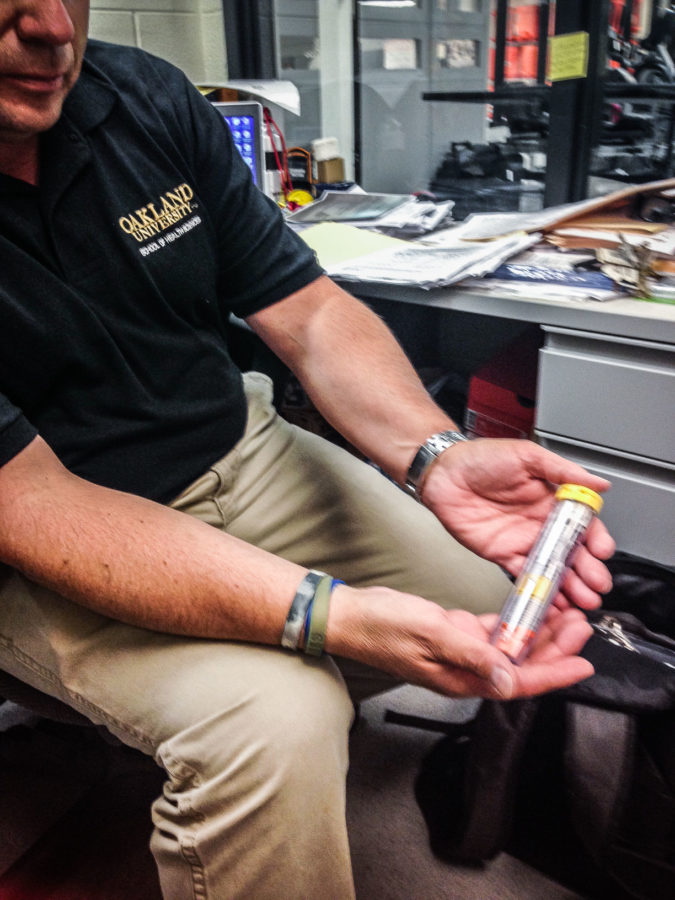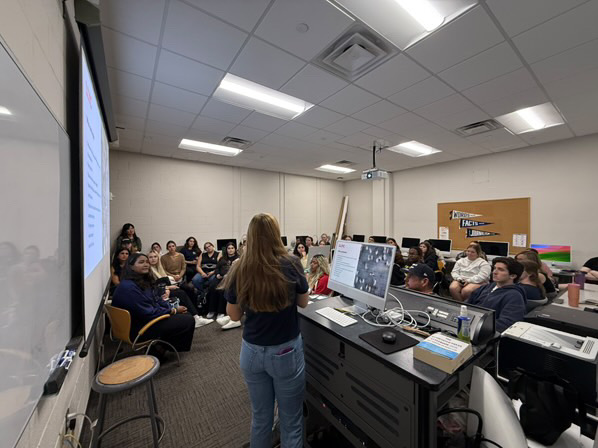Epipens allowed on campus
School staff have now been granted authorization to assist their students in case of a medical emergency. This school year, Epinephrine Auto-Injector Public Act 186 and 187, a Michigan law, requires public schools to have at least two injectors per building. This law is applied only to K-12 grade students and those on school grounds who have anaphylactic reactions.
The School Access to Emergency Epinephrine Act was passed in 2013 by President Obama so that states may adopt laws requiring schools to have the injectors.
What is it?
Epinephrine is a medication that acts rapidly to improve breathing and heart stimulation. The drug also reverses hives and reduces swelling of the face, lips and throat.
The Oakland Post spoke with Nancy Jansen, director of the Graham Health Center.
“It’s true that deaths have occurred from students not being treated as soon as possible during an allergic reaction,” Jansen said. “It’s important for younger students, when away from parents, to be treated immediately when life threatening emergencies occur.”
Jansen added that it falls under the same category as when a student is having an asthma attack.
OU athletes and EpiPens
College athletic trainers get authorization from student athletes to treat them in case of an emergency.
“Everyone on the teams are over 18, so students supply us with their EpiPens,” said Thomas Ford, Oakland’s athletic trainer. According to Ford, newer EpiPens are also made smaller, compared to the older ones, which makes them easier to carry and use.
Who is certified in schools?
According to Cynthia Edwards, a school teacher at Precious Pearls Child Development, located in Detroit, teachers have to be authorized by students’ parents. Staff members are to be trained on how to properly use the EpiPen. Nurses may train staff and when EpiPens expire, they must be replaced for the subsequent school year.
Section 504 of the Rehabilitation Act of 1973 applies to health conditions, including life-threatening allergies. The law protects the rights of individuals with disabilities who are in a program, such as public schools, activities, or institutions of higher education, that receive federal financial aid.
“Before and after school programs by law must have EpiPen containers,” Edwards said. “The authorization from parents must also be signed and dated to use the injector on their children who have allergies.”
If a school does not have a policy on anaphylaxis, a parent may request a 504 plan, which documents accommodations for a child’s specific needs. This may include how to detect and treat the allergy.
Schools may go to private sources to obtain funding for epinephrine auto-injectors, but the EpiPens 4 Schools program, from Mylan Specialty, distributes free EpiPens for schools that meet qualifications.
Elementary, middle and high schools has to be administered liability. Life threatening allergies for college students are handled differently.
“Students every other month come in with allergic reactions,” stated Nancy Jansen, Graham Health Center director. Nancy said that college students with a history of allergic reactions should carry an EpiPen prescription.
For more information go to epipen4schools.com or visit www.michigan.gov.






